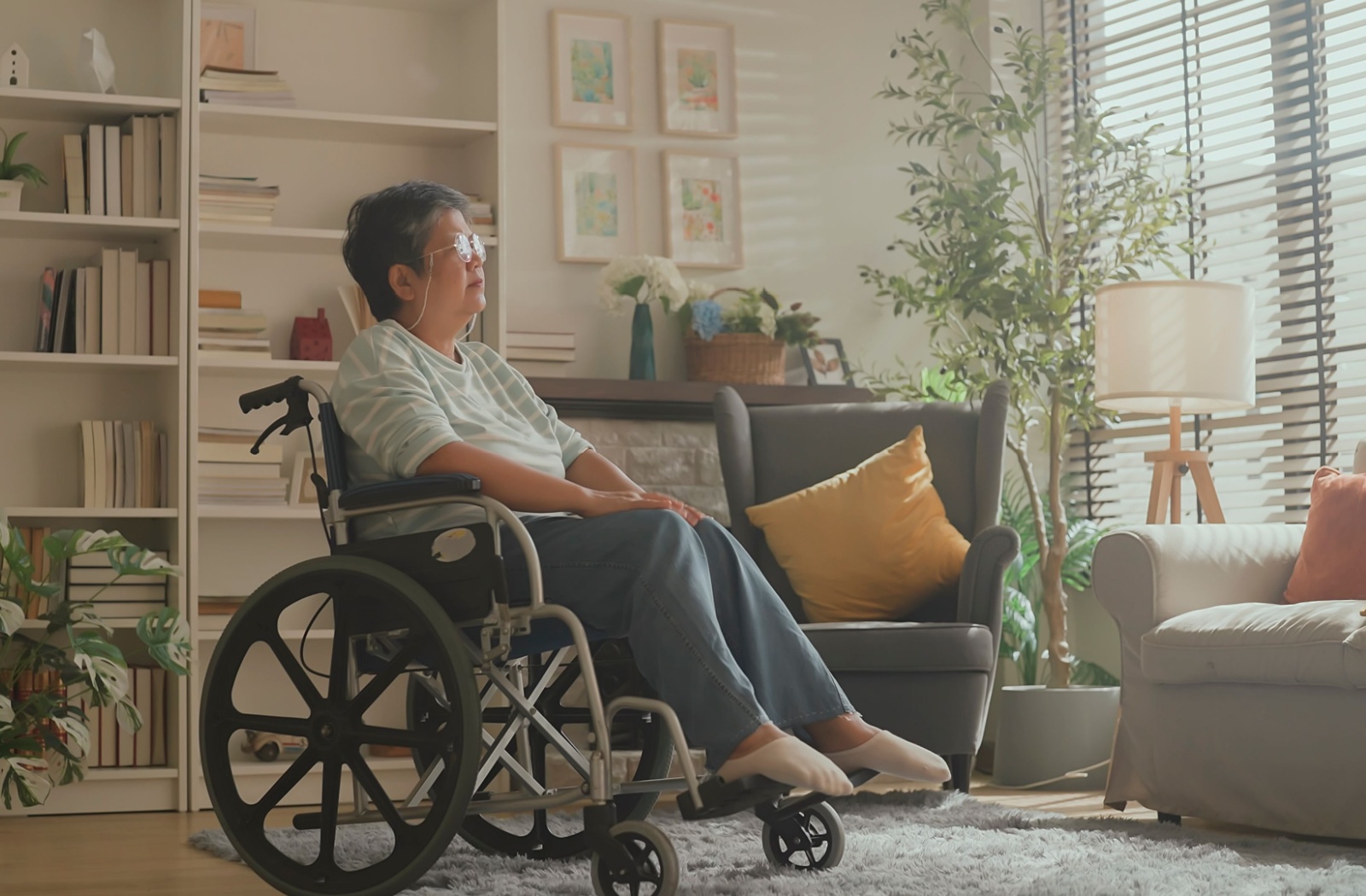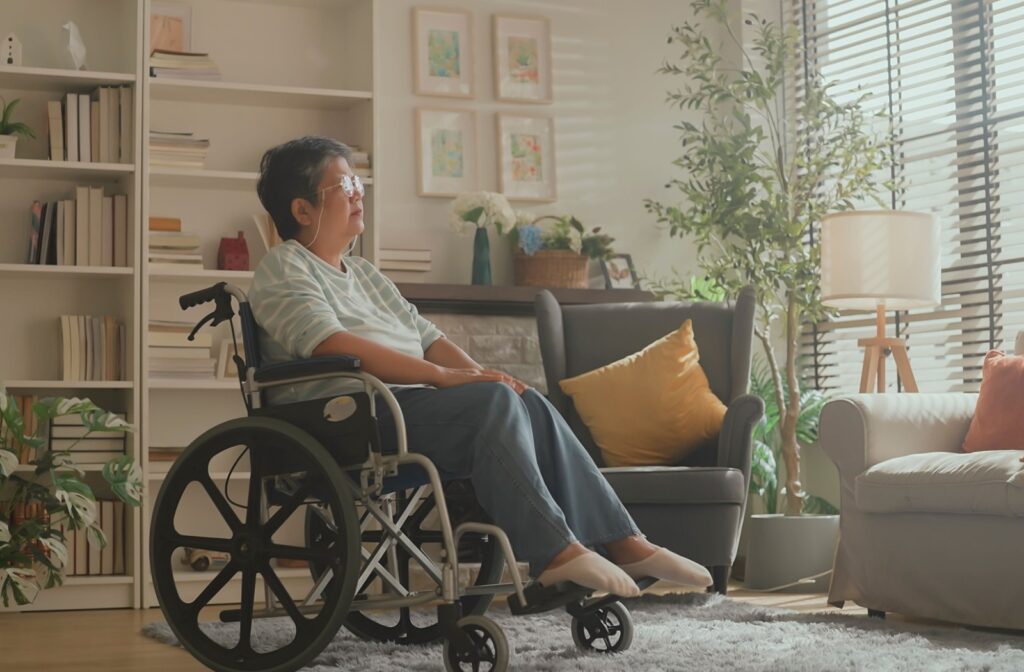Caring for an aging parent is both a privilege and a challenge. It can be difficult to recognize when they need more help than you can provide, and even harder to know the best way to support them. Assisted living could be the answer, but how do you know when the time is right?
Some signs that your parent is struggling and could benefit from assisted living include suffering from an injury or illness, the loss of a spouse, difficulty managing their home, or you yourself struggling to provide them with the care they need.
How Do You Know When an Older Parent Needs Help?
Your parent might not verbalize that they need help. Often, a person’s needs reveal themselves through changes in behavior, health, or living conditions. Life events like losing a spouse or sudden accidents can also highlight previously hidden vulnerabilities.
Recognizing the signs early can significantly improve your parents’ quality of life. Below, we’ll outline telltale clues that point to the need for more hands-on, structured support.
5 Signs Your Parent Needs Assisted Living
1. They’ve Recently Lost Their Spouse
If your parent recently lost their lifelong partner, they may be struggling with more than just grief. Spouses are often an intimate source of daily support, helping with cooking, cleaning, errands, or medication reminders. Losing that partnership can lead to loneliness, depression, or a decline in a person’s ability to manage daily life.
Assisted living offers practical help with daily tasks, a chance to forge new friendships, and a chance to engage in activities that combat isolation.
2. They’ve Recently Suffered an Injury
Has your parent fallen recently? Accidents like slips, falls, or other injuries can signal declining mobility or balance issues. Physical weakness may also impair their ability to recover from these injuries, putting them at risk for further complications.
Assisted living communities provide a safe environment with features like grab bars, emergency response systems, and staff trained to assist in medical situations. This ensures residents’ safety while also giving them peace of mind.
3. Physical Weakness or Chronic Illness Is Taking Over
Aging often brings physical challenges like reduced strength, arthritis, or illnesses like diabetes or cardiovascular conditions. If you notice your parent struggling to move around, dress, or handle personal hygiene tasks, assisted living can help bridge the gap.
Staff at assisted living communities can provide support with daily activities like getting dressed, eating, and managing medications. This can significantly boost your parents’ physical well-being and independence.
4. Their Home Is Becoming Unmanageable
A messy house doesn’t just mean clutter; it could also signify difficulty keeping up. Pay attention to signs like piles of dirty dishes, mounting laundry, or uncared-for pets. If routine tasks fall off your parents’ radar, it may be a sign they’re overwhelmed.
Assisted living lifts the burden of household chores by offering housekeeping, laundry services, and on-site meal preparation. Seniors can then focus on the things they enjoy, without worrying about the upkeep of their home.
5. You’re Struggling to Provide the Care They Need
The most challenging sign to face is your frustration or exhaustion as a caregiver. Many adult children try to juggle caregiving with their families, careers, and personal health, but it’s not always sustainable.
If you feel emotionally drained or physically stretched too thin, it’s time to explore assisted living as an alternative. These communities are staffed with caregivers who specialize in senior care, allowing families to focus on quality time with their loved ones, not on caregiving stress.
What Is Assisted Living?

Assisted living provides seniors with a supportive yet independent living environment. This form of care is a perfect balance between receiving practical help and maintaining freedom in a community of like-minded individuals.
Assisted living is ideal for seniors who value their independence but require assistance with daily activities like bathing, dressing, or meal preparation. Assisted living communities foster belonging through social events, dining areas, and shared recreational spaces.
How Does Assisted Living Support Seniors?
Assisted living facilities are designed to meet your parents’ needs in numerous ways:
- 24/7 Support: Trained staff are always available for anything from medical emergencies to assistance with daily tasks.
- Medication Management: Care teams ensure your parent stays on top of their prescriptions, reducing risks associated with missed doses or confusion.
- Nutritious Meals: Communities provide chef-prepared meals tailored to seniors’ dietary needs.
- Social Opportunities: From group exercise classes to movie nights, there are plenty of chances to build friendships and stay active.
What Does a Day in the Life of Assisted Living Look Like?
Each senior’s experience in assisted living is unique, but here’s an example of a typical day:
- Morning walk around beautifully landscaped paths, followed by a fresh, hot breakfast.
- Mid-morning yoga or a painting class in the activity center.
- Lunchtime conversation with friends, enjoying nutritious and delicious meals.
- Afternoon assistance with light exercises or a trip to the salon for some pampering.
- Evening bingo or board games, wrapping up with a community movie screening.
Will My Loved One Be Happy in Assisted Living?
It’s natural to worry about how your parents will adjust to this new chapter in their life. However, most seniors find that assisted living gives them a renewed sense of community, purpose, and independence. Over time, consistent social interaction and personalized care help foster happiness and a sense of belonging.
Encourage your parent to visit the community before deciding. Seeing how warm, inviting, and vibrant daily life can be in assisted living can help ease anxieties and pave the way for a positive transition.
Finding the Right Assisted Living Community
Recognizing that your parent needs additional care isn’t an admission of failure—it’s an act of love. By prioritizing their safety, comfort, and well-being, assisted living gives your parents the chance to thrive while preserving your peace of mind.
Polar Ridge Senior Living prides itself on providing warm communities and thoughtful care that makes a difference in our residents’ lives. Contact us today to learn how we can support you and your family.



